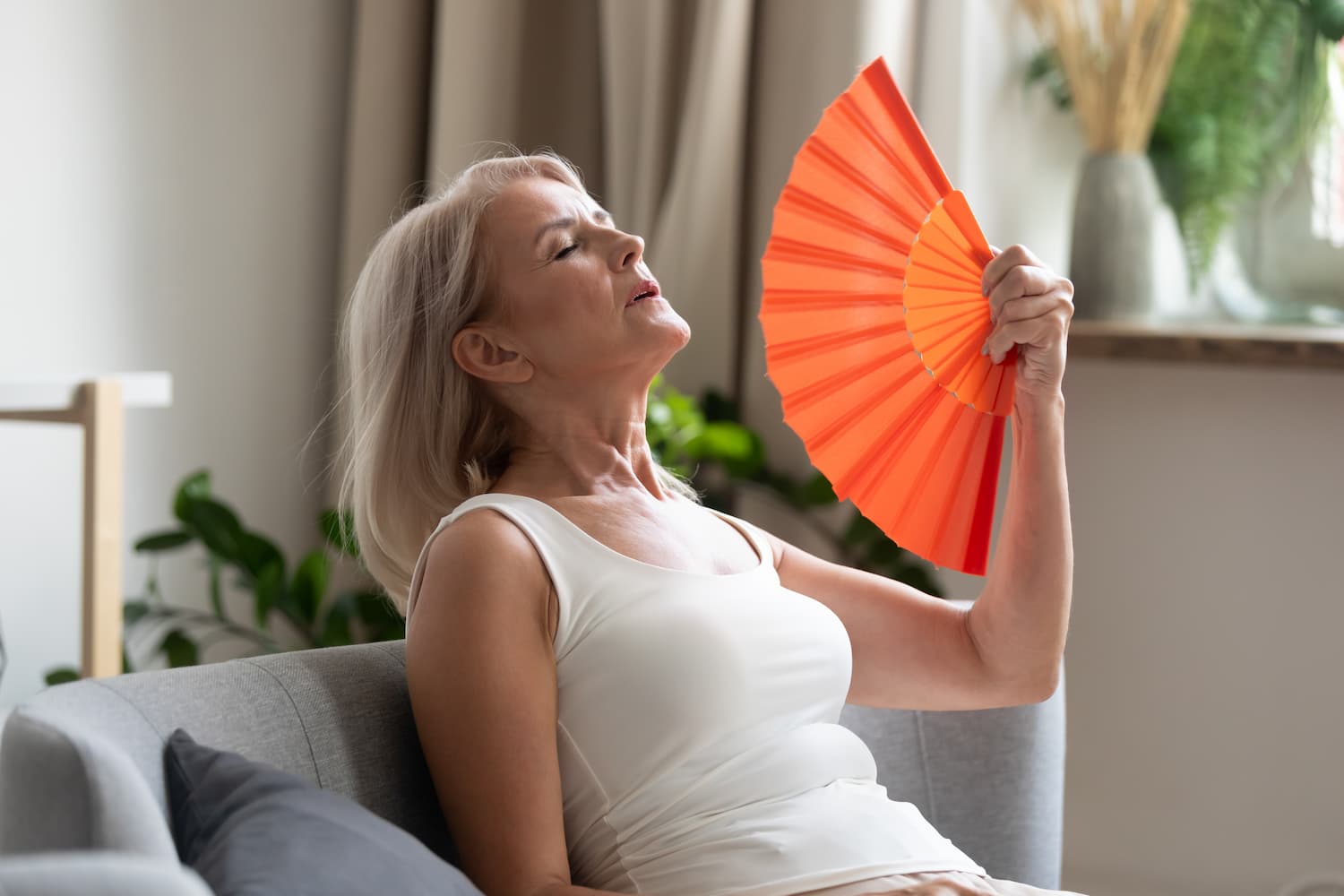Hormone Replacement Therapy (HRT)
Imagine there was a drug that could help you live longer, protect your heart and bones, keep your brain nimble, skin plumped – and your libido going into your 50s and 60s and beyond?
Of course, there is such a treatment – hormone replacement therapy (HRT).

How does HRT help menopausal symptoms?
- Eases hot flushes
- Prevents night sweats
- Improves mood
- Keeps vagina healthy
Women who are enduring debilitating menopausal symptoms, such as hot sweats, memory problems and vaginal dryness, report improvements within a few weeks of starting HRT.

What are the long-term benefits of taking HRT?
- Protects bone health
- Evidence it improves heart health
- Reduces risks of type 2 diabetes
- Reduces the chance of bowel cancer
- Lessens likelihood of depression
- May give protection against cognitive problems (ie dementia)
Yet still, many women are hesitant about HRT. They may have read scare studies about breast cancer and blood clots and are naturally concerned about the long-term effects on health.
However, it is important to understand that most doctors believe the risks associated with HRT have been misunderstood. For many women, being denied HRT may be harmful to their wellbeing.

Why is HRT needed?
When a woman’s ovaries no longer produce the reproductive hormones oestrogen and progesterone during the menopause, this marks the time of transition – and often produces unpleasant menopausal side effects.
HRT can entail taking both oestrogen and progesterone (combined HRT) or, for women who have had a full hysterectomy not related to cancer, just oestrogen. HRT can also include testosterone, which, although associated with men, is in fact an is an important hormone for women, which is also produced by the ovaries. It decreases after menopause, causing a lack of energy and decreases sexual desire.
HRT
HRT can be delivered in the following ways:
- Orally in tablet form
- A skin patch
- An implant
- Oestrogen gel – which is applied to the skin and absorbed
- Oestrogen in pessary-form for vaginal dryness
A bespoke prescription that takes in precise hormone levels as well as a patient’s health history and lifestyle yields the best results.
Types of HRT
Synthetic hormones Vs Bioidentical hormones
Conventional HRT is manufactured by pharmaceutical companies. This kind of HRT is made from a blend of hormones extracted from pregnant horses’ urine and made synthetically in a laboratory. For many women, synthetic HRT works well, but it can take some time to get the right dosage to suit each individual.
Bioidentical hormones are derived from plant oestrogens and chemically identical to the hormones the body produces in their shape, make-up, and structure. The idea is, that these bioidentical hormones are far more effective at working with the body.
Bioidentical hormone therapy (BHRT) is now licenced and approved by the NHS. Although both types of HRT work very well, many practitioners believe BHRT has a better safety profile than synthetic hormones – for example, all of the studies linking hormone replacement therapy to a lightly elevated breast cancer relate to conventional HRT, not BHRT. There is also a body of opinion that bioidentical hormones produce far less side-effects.
Whatever form of HRT you choose, an integrative approach looking at the patient’s full health history and lifestyle. A bespoke, tailored approach with regular monitoring by blood levels gives the best outcome.
If you’re under 60, the benefits of HRT will be greater than any risks. In fact, although there is a small risk of breast cancer, there is no evidence that taking HRT increases a woman’s risk of dying from breast cancer. Evidence strongly suggests women in their 50s and 60s who took HRT pills had a 30 per cent lower chance of dying from heart problems.
The following factors carry more risk than taking HRT, when it comes to developing breast cancer.
- Being overweight
- Consuming two to three units of alcohol each day
- Leading an inactive lifestyle
There are some risks associated with taking HRT, but these are extremely small and the benefits outweigh them. Statistically, you are at more risk from not taking HRT than taking it. The important thing is to discuss your health history and lifestyle with a consultant gynaecologist who specialises in gynaecological endocrinology.

